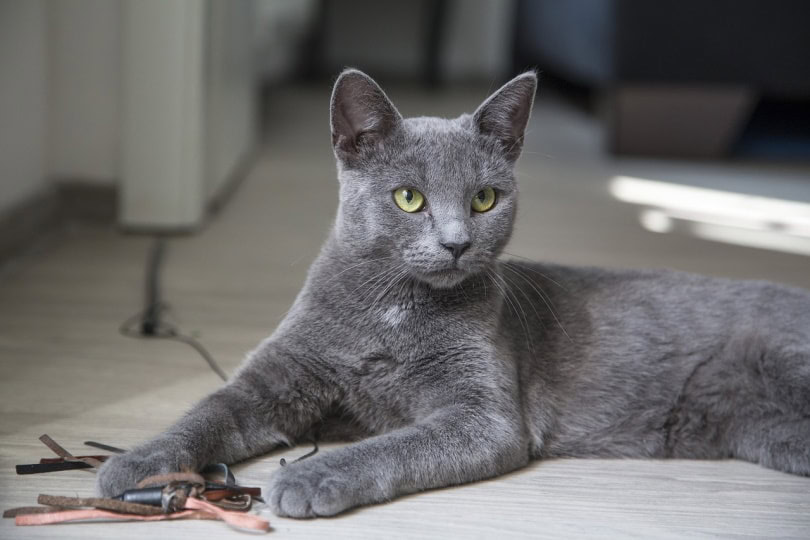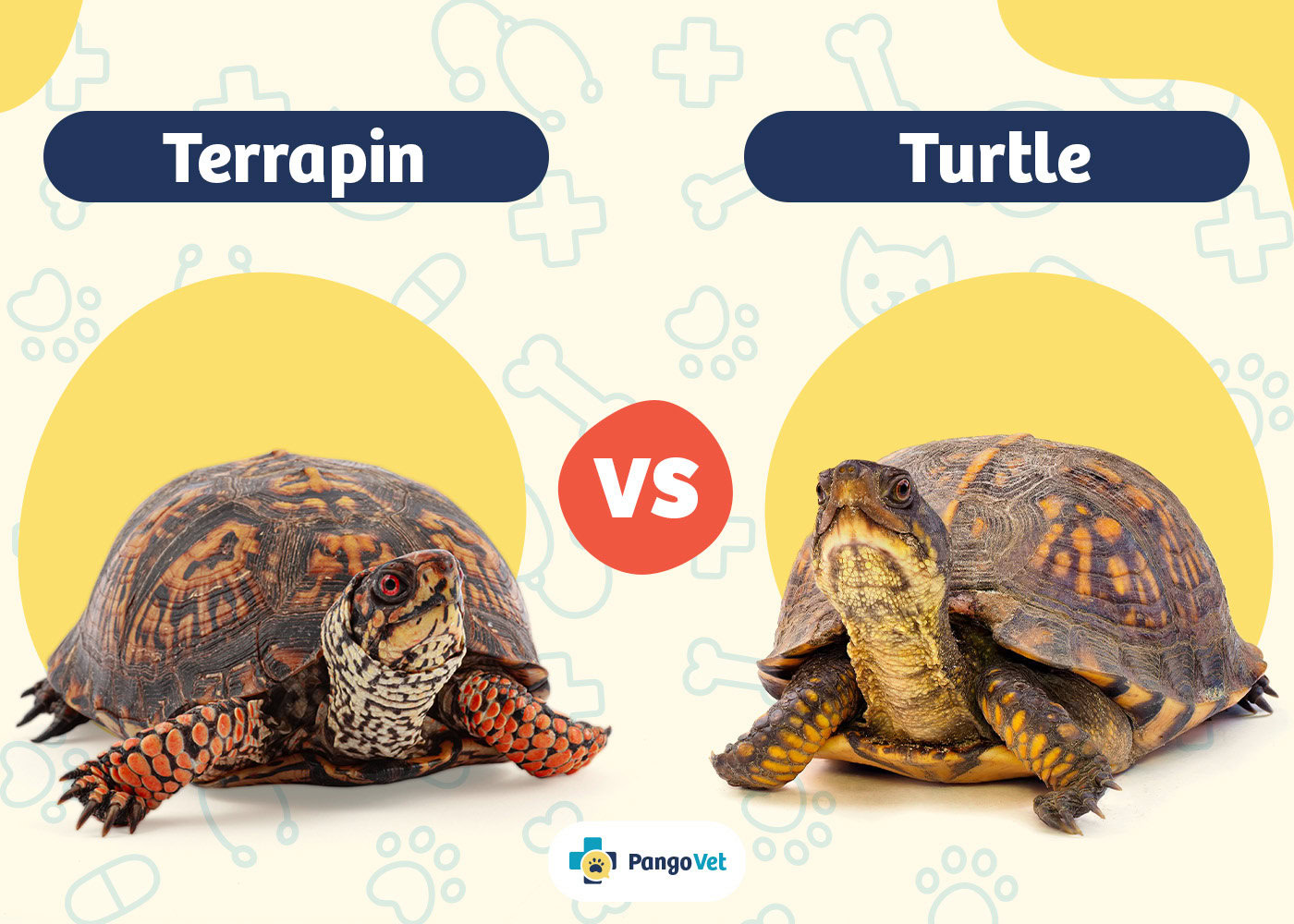Despite their natural cleanliness, cats smell just as much as any other pet. Unfortunately, living with them makes us pet owners nose-blind to the general feline odors that cling to our homes. Guests or potential renters have no such luxury.
If you’re planning on hosting a celebratory meal or holiday or are planning to move, removing the cat smell clinging to the walls of your apartment is only polite. Fortunately, removing pet odors isn’t impossible. It might take a little determination, but where there’s a will, there’s a way.
Depending on the type of pet odor that you’re dealing with, removing the smell may be relatively simple or challenging. Try out these methods to find the best solution for removing unpleasant cat smells from your apartment.

Before You Start
Finding the source of the odor is always your first step. Sometimes, the obvious causes of unpleasant smells — like the litter tray — aren’t always the only ones. Cats have a habit of leaving surprises everywhere, from under the bed to inside a pair of shoes in the shoe rack.
Before you can begin to tackle the smells left by your feline, you need to locate the problem areas. You can do this by trusting your nose or using a blacklight to reveal old, invisible urine spots and stains. Remember to check beneath the furniture that your cat can climb under, too.
There are a variety of effective, pet-safe products you can use at home to help get rid of bad smells coming from your cat. Here are our top picks.
| Rating | Image | Product | Details | |
|---|---|---|---|---|
For Litterbox
 |
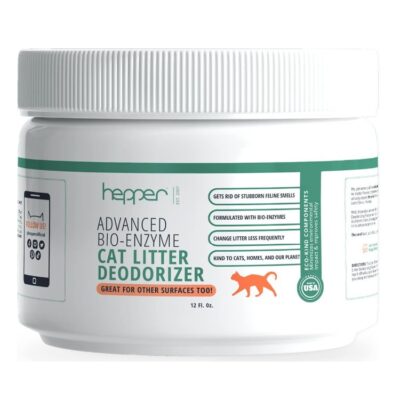 |
Hepper Cat Litter Deodorizer |
|
Check Price |
For Home
 |
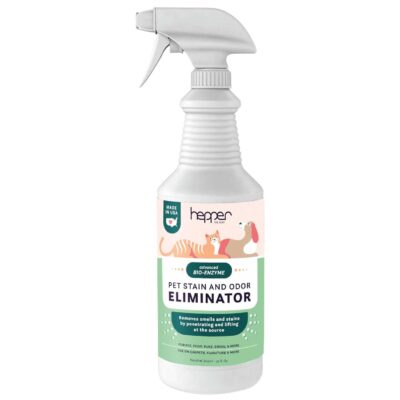 |
Hepper Advanced Bio-Enzyme Pet Stain & Odor Eliminator Spray |
|
Check Price |
For Pet
 |
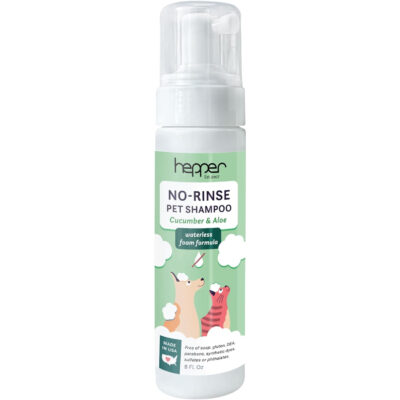 |
Hepper Waterless No Rinse Pet Shampoo |
|
Check Price |
At PangoVet, we've admired Hepper for many years, and decided to take a controlling ownership interest so that we could benefit from the outstanding designs of this cool cat company!
Once you’ve found the source of the smell, you can use any of the following tricks to get rid of it.

The 11 Ways to Remove Cat Smell in an Apartment
1. Act Fast
When it comes to all types of pet odors, not only from cats, acting as quickly as possible helps prevent lingering odors. Clean up urine puddles and vomit as quickly as you can. This will reduce the chances of the odor sinking into your couch or carpet and limit the amount of staining.
By cleaning up urine puddles as they happen, you’ll also be working to prevent your cat from coming back to the area to relieve themselves again.
The same can be said about smelly litter boxes. Even if you’ve already cleaned it once, if your cat has a particularly stinky poop, scoop it as soon as possible. Not only will it make your cat happier to use their litter tray again, but it’ll also prevent the smell from permeating throughout your apartment.
- Prevents staining
- Reduces lingering odors
- Not possible if you’re at work
2. Air Purifier
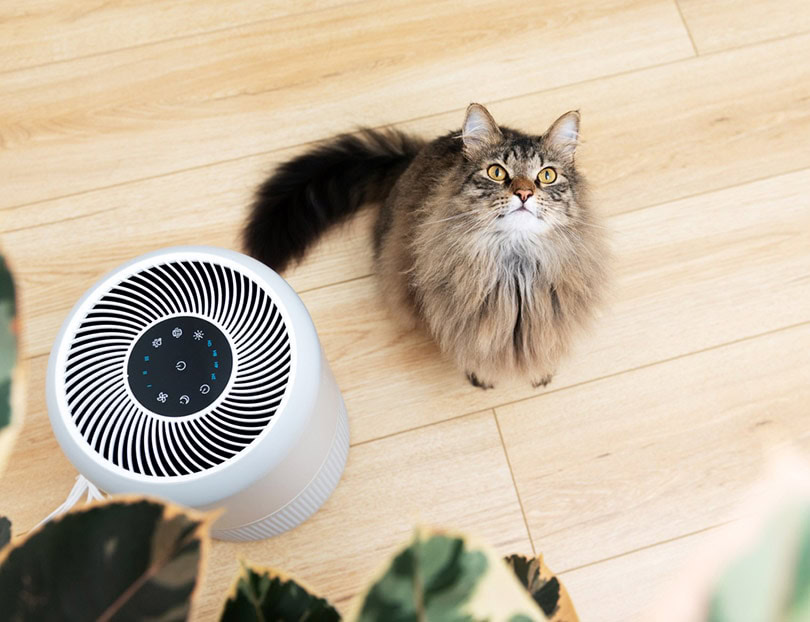
Battling stubborn smelly stains is one thing, but the smell might linger even after the obvious stain is gone. This is where air purifiers can help. Unlike air fresheners, which only mask a smell, air purifiers trap the particles that cause the smell in the first place. Many of them come with filters designed specifically for pet owners.
Air purifiers can get expensive, and for the best results, you’ll want to put several around your apartment. Pay particular attention to rooms where your cat likes to spend their time and where their litter tray is located.
- Reduces lingering odors
- Can use multiple air purifiers around the apartment
- Expensive
3. Baking Soda
A popular hero for cleaning stubborn messes and deodorizing, baking soda is found in most people’s homes. You can use either normal baking soda or purchase one with a fragrance to work on tougher odors. If you do decide on the latter, make sure it’s safe for your cat — some fragrances are toxic to felines.
Using baking soda is one of the simplest solutions to battling smells. Sprinkle the powder over the area that you want to deodorize, let it sit for 10–20 minutes, and then vacuum. This option is also unlikely to damage your carpet and can be repeated as often as necessary until the smell is gone.
- Simple application
- Clean-up is easy
- Some fragrances can be toxic to cats
4. Bath Time
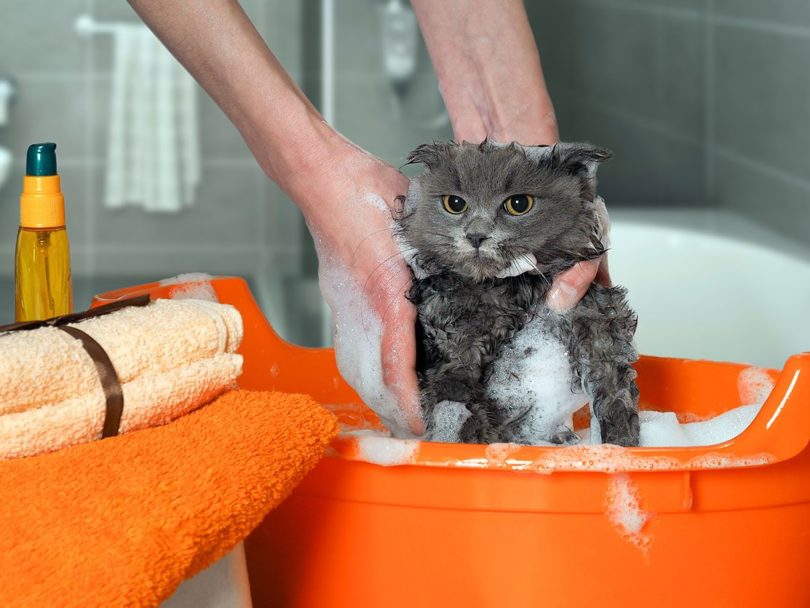
The source of most pet-related odors is sometimes your cat, especially if they love to bring back a wide variety of smells from all their outdoor adventures. For these odors, sometimes the only option is a bath. Don’t use human soap or shampoo, though; you should only use a shampoo formulated for cats.
Also, some felines won’t appreciate being put anywhere near water. If your cat hates everything to do with baths or isn’t used to being bathed at all, you may find yourself with a few nasty scratches and a very miffed feline.
Too many baths can also wash the natural oils out of your cat’s fur and leave them with itchy, dry skin. Baths should only be attempted when they’re necessary.
- Targets odors clinging to your cat
- Some cats dislike being bathed
5. Citrus and Hydrogen Peroxide
A homemade solution to pet odors is a mixture of citrus and hydrogen peroxide. You’ll want to test a small area of your carpet, wooden flooring, or upholstery first to make sure it doesn’t damage the material. This mix is a good natural alternative to chemical cleaners that might be harmful to your cat.
As a bonus, cats aren’t fond of citrus smells. Not only will this solution help clean up stains and reduce odors, but your cat will also be less likely to return to the area to relieve themselves again.
- Natural
- Cats dislike citrus smells
- Can’t be used on your cat’s bedding
6. Enzyme Cleaner
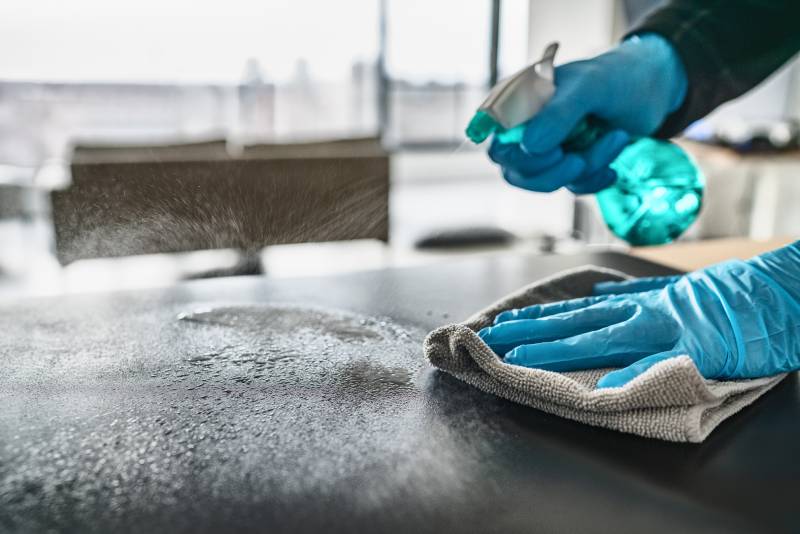
A great way to remove organic messes and reduce their odor is by using enzyme cleaners. These use a natural blend of bacteria and enzymes to break down organic material, including cat urine, vomit, and poop stains.
They’re also ideal for making sure you don’t damage your furniture or flooring while cleaning because they’re safe for use on most materials. If you’re not sure about whether your particular material is safe, though, test a small area first.
Not everyone has enzyme cleaners readily available in their household. You can find brands designed specifically for pet-created accidents at your local pet store or online retailers.
- Natural
- Cleans and deodorizes organic messes
- Pet-specific formulas are available
- Not all enzyme cleaners are good for pet-related messes
- ADVANCED ENZYMATIC CLEANER - Penetrates the most stubborn smells and stains at the deepest molecular...
- FOR ANY MESS, ON ANY SURFACE - This pet odor eliminator cleans your carpets, floors, furniture,...
- FRESH, NATURAL ODOR - Our unique formulation doesn't rely on dangerous or unpleasant chemical...
7. Dawn Dish Soap and Water
Many people forget to consider walls when they’re cleaning their apartments. Many of the odors from our cats can cling to the walls just as much as the carpets and furniture. Mixing a simple bucket of warm water and Dawn dish soap is an easy way to clean up. While it’s a difficult solution to use on carpet or upholstery, it’s useful for walls and hardwood floors.
You can use other soap if necessary, but Dawn is non-toxic to animals and is well known for fighting through odors and mess.
Make sure the water isn’t too hot, though, as some vinyl flooring options don’t handle heat well.
- Works best on wooden floors and walls
- Dawn is non-toxic to animals
- Laborious
8. Vacuum
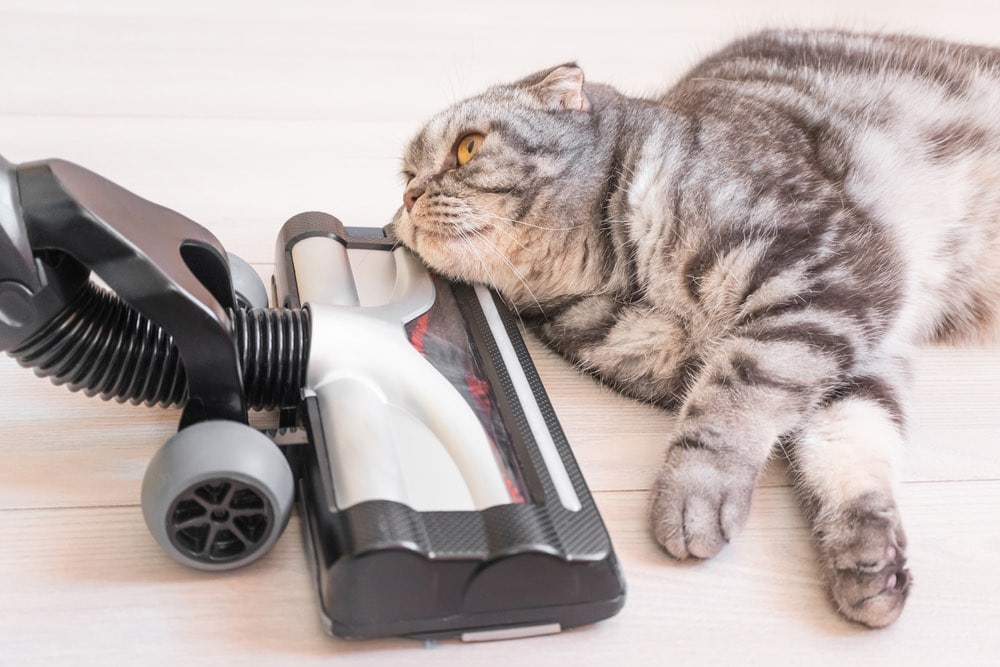
Shed hair and dander can also be frequent causes of pet-related odors. Your cat’s fur can get everywhere from their bedding to the favorite jacket that you keep reserved for nights out.
Vacuuming the apartment is a tedious job, but it’ll help you control the level of cat fur stuck in your carpet. Your cat might not appreciate the noisy invader in their home, but running a vacuum through your house regularly can eliminate many pet odors and pick up other debris.
There are vacuum models with features designed specifically for pets to prevent too much fur from clogging the hose and getting into those tough-to-reach crannies that hair always gets drawn to.
- Removes dander and shed hair
- Should be done regularly for best results
- Vacuums can get clogged with fur
9. Ventilation
Airing out your apartment can remove many lingering odors. It’s a job that’s best left for warm summer days and works best if the sun hits your apartment. Open all the windows and doors, run a few fans to get the air circulating, and let the nice weather do the work for you. It also works especially well for removing any airborne odors leftover after deep-cleaning your apartment.
Unlike some other solutions, ventilating your apartment takes a long time. You may have to leave the windows open all day for several days in a row to remove particularly stubborn odors. It also has the downside of requiring nice weather, especially if you’re living in your apartment while you’re airing it out.
- Cheap
- Natural
- Lengthy process
- Requires a sunny day
10. Washing Cat Bedding and Toys
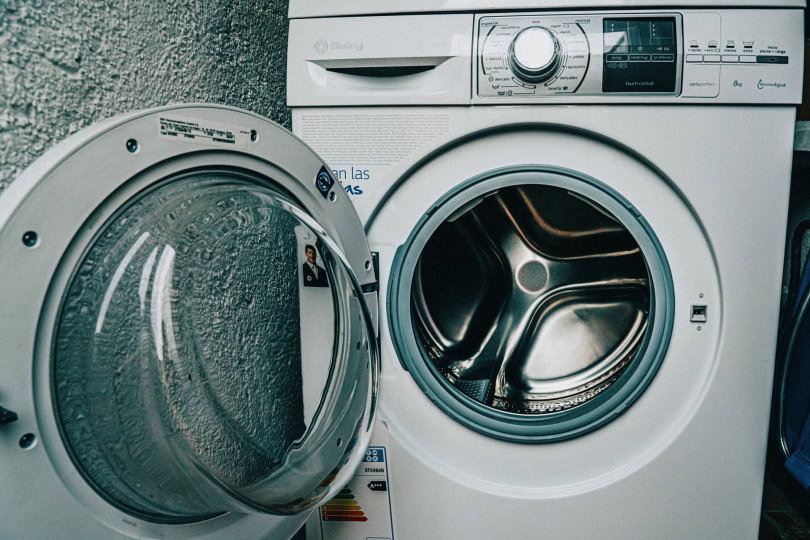
If there’s one thing that is certain to carry lingering feline smells, it’s where they spend most of their time. Their bedding, favorite blanket, and soft toys can all pick up various odors over extended use. It’s why many cat beds have machine-washable pillows or pillowcases.
You’ll need to double-check their toys and pillows to make sure they’ll be okay in the washing machine or survive a dip in the sink. Some toys, like catnip-infused plushies, can’t be washed or they’ll lose their enticing smell.
Spending a day every so often washing your cat’s possessions can be an effective way to target odors that you might have forgotten about. If you keep up with a regular washing schedule, you can also prevent odors before they set in.
- Cleans objects that your cat uses frequently
- Some bedding and toys can’t be washed
11. Wet Vacuum
While steam can work against you and set stains deeper into the material, wet vacuums are ideal for carpets with particularly stubborn stains. They clean messes by washing your carpet and vacuuming up debris simultaneously. While they’re often limited to carpets, unlike mops, they have the benefit of keeping the dirty water separate so only clean water touches your carpet.
For the best results when it comes to pet-caused stains, you can use them alongside enzyme cleaners and professional cleaning solutions. They also don’t require you to get onto your hands and knees to scrub at the stains.
- Removes stains
- Reduces lingering odors
- Only effective on carpet

Conclusion
As pet owners, we often become nose-blind to the odors surrounding our pets. Often, we don’t even think about how much they smell until our guests wrinkle their noses and shoot dubious looks at the icky stain on the carpet.
Fortunately, for future hosting plans or attempts to rent out your apartment, there are various ways to remove cat odors. Finding the right solution for your apartment can take trial and error, however. Locate the source of the cat-created odor — whether it’s their bedding, a forgotten stain, or their litter tray — and try one of these tricks to target the odor and leave your apartment smelling fresh.
Featured Image Credit: milivigerova, Pixabay
